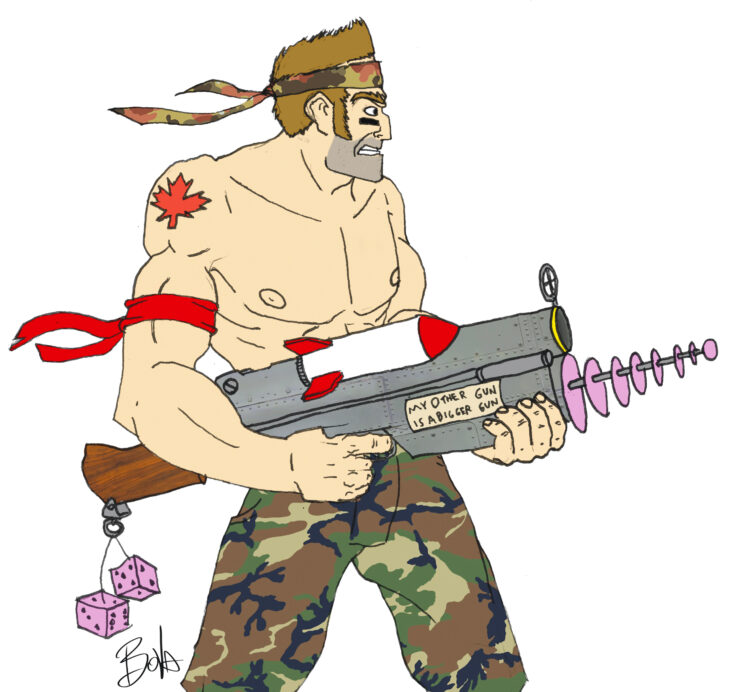
Parliament debates the future of gun control in Canada
ON OCT. 25, the Conservative government introduced Bill C-19 to the House of Commons, an act designed to end the long-gun registry. Heavy opposition from both the New Democratic Party (NDP) and the Liberal Party of Canada greeted the bill, adding to the dialogue accompanying the long-gun registry since its inception in 1995.
A long gun is any firearm with greater length than other classes of weapons, usually including rifles and shotguns. Currently, owners are required to register them.
The previous minority Conservative government
was not successful in abolishing the registry and made its removal a campaign promise in the May federal election.
“Our new Conservative party has believed, since the inception of the long-gun registry, that it was a waste of money and targeted the wrong people,” said Candice Hoeppner, parliamentary secretary for Public Safety Canada. “It is not focusing on criminals who are engaged in criminal activity. A lot of resources, a lot of effort, and a lot of attention [are] on law-abiding Canadians who are not using their guns for crime.”
The long-gun registry first began in 1995 with Bill C-68, introduced by then justice minister Allan Rock, now president of the University of Ottawa.
“The Liberal party of the day wanted to do something to look like they were doing something to fight that crime,” said Hoeppner. “The target was to create a list of long-gun owners, the majority of whom were in rural Canada and were using firearms for their rural way of life.”
The debate surrounding the bill, which has consumed two weeks of parliamentary committee meetings, has largely focused on the problem of the registry’s ineffectiveness.
“There is no proof that the registry has saved any lives,” said Hoeppner. “It costs a lot of money. It makes criminals out of individuals who are not criminals.
“By putting this in the Criminal Code, which is what the Liberals of the day had to do in order to make this a federal bill, it changed the way law-abiding gun owners were treated and continue to be treated in Canada. We see it as ineffective, unfair, and unjust.”
The NDP, official Opposition in the House, believes the registry is effective despite the Conservative government’s claims that the program is inefficient.
“We oppose [Bill C-19] because we think that the long-gun aspect of the registry could have been and should have been fixed,” said Jack Harris, justice critic for the NDP. “We wanted to make changes to it that would take away some of the irritants that rural Canadians and Aboriginal Peoples have with it [and] keep it as a valuable part of the gun control system in Canada.”
According to Harris, the Royal Canadian Mounted Police have said the registry saves 3,900 lives annually. He believes the Conservatives have only been attentive to those who agree with their position on the registry.
“We had victims of gun crime come to our committee and say that they want to keep the registry because it does help prevent gun violence, but [the government] didn’t listen to those victims at all,” said Harris. “It is like a scorched earth policy on gun control. It is a reckless move by [the] government and it is going to risk public safety, not enhance public safety at all.”
Harris believes students and citizens who are not aware of the current bill should inform themselves about it because of the effect it has on society.
“Issues like gun control are important to what kind of society we have,” said Harris. “We’ve had two university shootings in this country in the last 20 years. We’ve seen shootings like this in the United States as well.
“Students, as well as everyone else in society, have an interest, we think, in having fewer guns around. In the wrong hands, without control, [shootings] can only happen more often.”
Bill C-19 was presented by the Standing Committee on Public Safety and National Security on Nov. 30 and will be read a third time in the House.
—Christopher Radojewski




